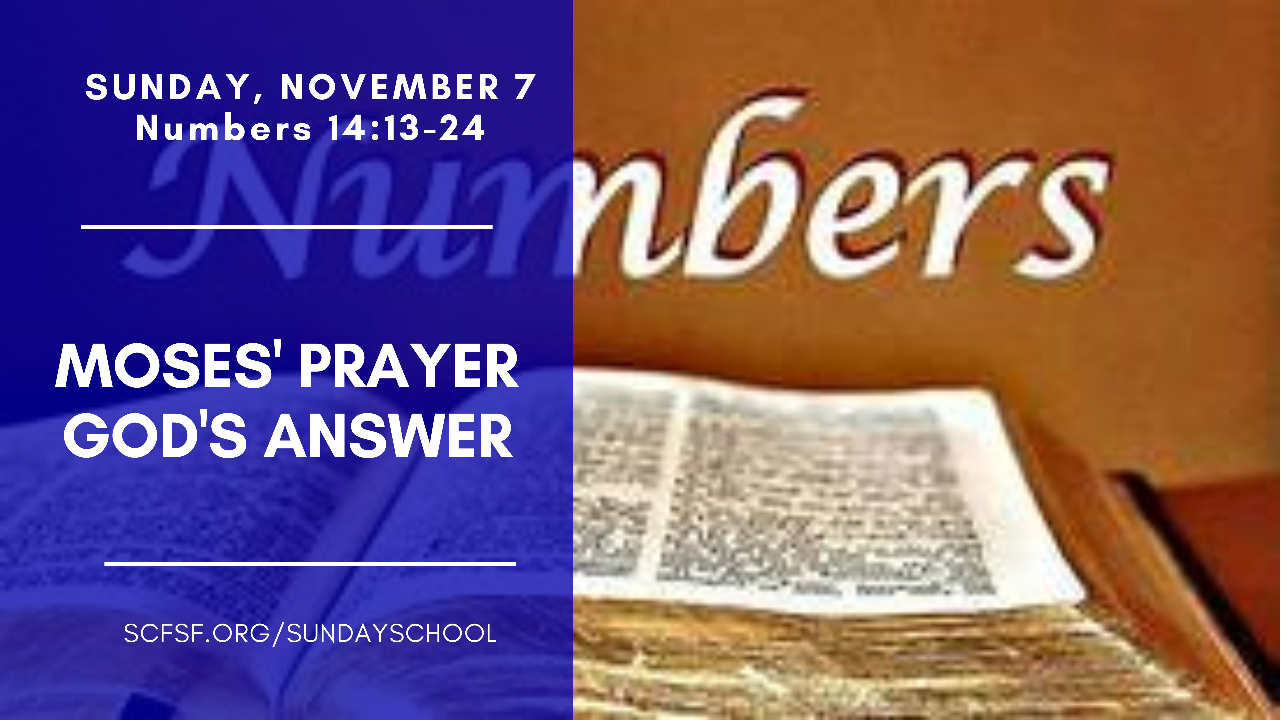
Scripture
By Raufu Spagnoletta
Scripture Lesson Text: Numbers 14:13-24
Related Scriptures: Nehemiah 9:16-21; Psalms 102:1-28; 145: 8-13;
John 12:37-40
Our lesson today, illustrates how the LORD, answered the sincere prayer of His faithful servant, Moses, “Pardon, I beseech thee, the iniquity of this people, according unto the greatness of thy mercy, and as thou hast forgiven this people, from Egypt even until now. And the LORD said, I have pardoned according to thy word.”
Nehemiah 9:16-21, is an historical account of God’s faithfulness to His unfaithful people, “Our fathers dealt proudly, and hardened their necks, and refused to obey…, but thou art a God ready to pardon, gracious and merciful, slow to anger, and of great kindness, and forsookest them not.”
The Psalmist gives hope to the destitute in generations to come, in Psalms 102: 1-28, “He will regard the prayer of the destitute, and not despise their prayer. This shall be written for the generation to come: and the people which shall be created shall praise the LORD.” King David sings of God’s love, in Psalms 145: 8-13, “The LORD is gracious, and full of compassion; slow to anger, and of great mercy. The LORD is good to all: and His tender mercies are over all His works.”
The disciple whom Jesus loved, writes in John 12:37-40, “But though He had done so many miracles before them, yet they believed not on Him.” This was done that the saying of Isaiah the prophet might be fulfilled, “Lord, who hath believed our report? and to whom hath the arm of the Lord been revealed?” “He hath blinded their eyes, and hardened their heart; that they should not see with their eyes, nor understand with their heart, and be converted, and I should heal them.” (Isaiah 6:8-10)
Synopsis
By Doug Smith
The people didn’t deserve it, but Moses pleaded for them because he was concerned about God’s reputation among unbelievers. Moses and Aaron ask God to have mercy on the very people who rebelled against them. They prayed for those with whom they were most angry and frustrated. Moses pleaded with God, asking Him to forgive His people.
His plea reveals several characteristics of God: (1) God is immensely patient. (2) God’s love is one thing we can always count on. (3) God forgives again and again. (4) God is merciful, listening to and answering our request.
The people of Israel had a clearer view of God than any people before them, whereas they had both His laws and His physical presence. Their refusal to follow God after witnessing His miraculous deeds and listening to His words made the judgment against them more severe. The golden text of today’s lesson is very clear. “The Lord is long-suffering, and of great mercy, forgiving iniquity and transgression , and by no means clearing the guilty, visiting the iniquity of the fathers upon the children unto the third and fourth generation.” ( Numbers14:18).
Practical Application
By Brittenne Boykin
In today’s lesson we find Moses interceding for the people that God would not destroy them. Practical application simply put is applying the principles of scripture to our daily lives. The application of the text in our own lives brings these truths to life and inserts them into every arena God places us in! We practically live out our faith in our homes, schools, jobs even at the grocery store! We see today Moses asking God to spare the people.
A people who were often rebellious, bucked up against Moses’ leadership, complained and were ungrateful. What does that look like in our lives? Let me give you a snapshot, one that I will pull out as a reminder to myself. It looks like kindness when others are less than kind, and a soft answer in a loud world, seeking peace when violence is the response of the culture. It means living a life where we intentionally and purposefully extend the same grace which has been so freely given to us.




